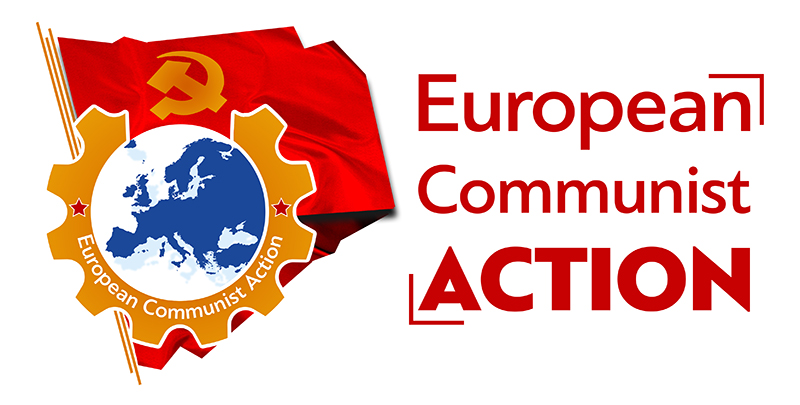Contribution of Communist Party of the Workers of Spain
Conclusions and prospects for the labor movement in Europe
Dear comrades,
First, we would like to thank the comrades of the KKE and the PCRF for making this important ECA meeting possible under the conditions of advance in class struggle for the ensemble of European countries.
We are meeting today for the assessment of the lessons and prospects of the workers' movement in Europe, taking the anniversary of the mass strike rallies of the public sector in France in March 2024 as a reference. Those rallies, which paralyzed most of the country, were an overwhelming expression of the working-class resistance against the policies of dismantling rights promoted by the Macron Government. They were not an isolated event, but a new chapter of the struggle after the battle against the 2023 pension reform — a struggle that remains open today.
The case of the anti-workers' attacks by the French Government is not unique in Europe. The offensive against the life and labor conditions of the social majority is a general trend of European capitalism in its current stage of crisis and restructuring that will be worsened in the near future. In Spain, even though we have not witnessed an answer at the same scale, the reforms regarding pensions and the worsening of labor conditions via the implementation of flexicurity measures are advancing under the same fundamental logic — ensuring the profitability of capital at the expense of the devaluation of workforce.
This process of devaluation of workforce is expressed in the decrease of real wages, the increase of prices, and the precarization of work. Such process is not an “accident” nor a mistake, but a structural need for capitalism in its current stage. The bourgeoisie is resorting to various strategies in order to increase its profits against the tendency of the rate of profit to fall and the permanent threat of a crisis of over-production and over-accumulation. Among them, the decrease in salary costs through not-cleared inflation, the increase in the retirement age, and the privatization of public services under the argument of “sustainability” are to be emphasized.
While in other countries the weaknesses of the mobilizations may be the very limits of their own spontaneity, the problem is different in countries like Spain. The mobilization in Spain has not reached the same intensity than in France, mostly due to the role of majoritarian trade unions, whose attachment with the Government of social-democratic coalition has led them to assume a policy of restraint and demobilization favoring the institutional negotiation. This attitude ultimately favors the perpetuation of attacks against the working class, and it answers to an understanding of social partnership as the mechanism of conflict regulation. Such mechanism is actually used as a tool of the bourgeois State in order to guarantee social peace for the sake of monopolies. A recent example of the role played by the social-democracy in the workers' movement in Spain is the recent statements made by national trade-union leaders for the “rearming of Europe” and the “strategic autonomy” of the EU.
The French example shows us that, when the workers' movement manages to structure itself independently from power structures, the struggle can gain enough intensity to threaten the plans of the bourgeoisie. Nevertheless, it also reveals the limits of a strategy exclusively based on defensive resistance. Even though the 2023 and 2024 strikes managed to cause difficulties to the Macron Government, they were not capable of reversing the measures imposed. This should lead us to a reflection: the workers' struggles cannot be limited to a reactive protest, but they should rather be a step towards the construction of a political alternative of the working class, for which the role of the Communist and Workers' Parties is irreplaceable.
Comrades,
In short, the experience of the strikes in France and other countries leaves us essential lessons. First, the working class is still capable of questioning and paralyzing the bourgeois political agendas. Second, class independence is an essential precondition for the workers' movement so it can play a decisive in the clash with capital. And third, the economic struggle is not enough by itself — without a clear political guidance and a revolutionary strategy, partial victories end up being assimilated by the system.
The communists have a double task in this context. On one side, we should reinforce our intervention in the spaces of workers' struggle, foster a combative line in the trade unions and know how to point out to the weaknesses and contradictions of the policy of social partnership. On the other side, we should work to give the workers' movement a clear political insight that can unveil the deceptions of the social-democratic strategy and connects every immediate struggle with the strategic goal of the seizure of power and the construction of socialism-communism.
The European capitalism is found today in a stage of crisis, and the bourgeoisie does not have any other way out than deepening on the exploitation, repression, and war in order to maintain its rates of profit. In this scenario, the organization of the working class becomes the only guarantee to prevent that the crisis is not burdened on our backs. The communists have the responsibility to decisively contribute to such organization, to strengthen class conscience, and to unambiguously point out that the only real alternative to capitalist barbarism is socialism.
